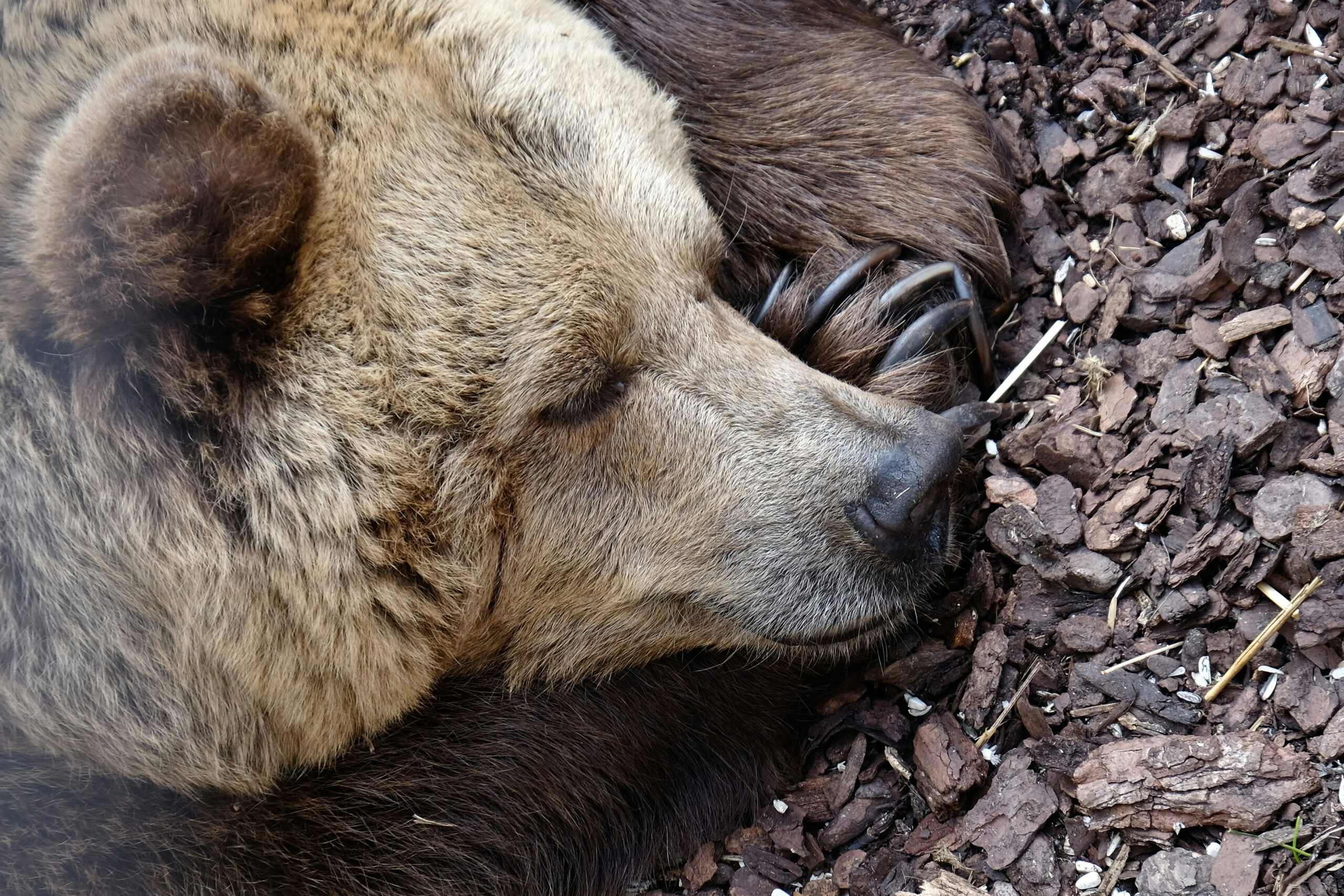
What Happens When a Bear Hibernates ?
Bears aren’t just sleeping through winter. When they hibernate, they enter a state so extreme, it would kill most other animals, and definitely any human. But for them, it’s just business as usual. Let’s take a look under the fur.
Hibernation ≠ Sleep
Forget the image of a bear peacefully dozing off for months. Hibernation is not sleep, it’s a complex physiological shutdown designed to help the bear survive winter with no food, no water, no bathroom breaks, and barely moving.
Here’s what really happens:
- Their heart rate drops from 40-50 beats per minute to as low as 8.
- Breathing slows to just 1 or 2 breaths per minute.
- Their body temperature falls, though less than in smaller hibernators.
All of this for one sole purpose : energy conservation.
Yet despite all this, bears remain alert enough to react if danger comes too close.
No eating. No drinking. No problem.
During hibernation, bears don’t eat or drink for up to 7 months, but they don’t lose muscle, suffer dehydration, or poison themselves with waste.
How?
- They recycle waste into proteins to preserve muscle mass.
- They don’t urinate or defecate, thanks to internal chemical recycling.
- Fat reserves provide water and energy, keeping them going.
And yes, they can even give birth while hibernating, nursing cubs in the den without ever waking fully.
If food remains available through the winter, some bears may skip hibernation altogether, no need to shut down when the buffet stays open! It is the case for bear living in captivity for example.
